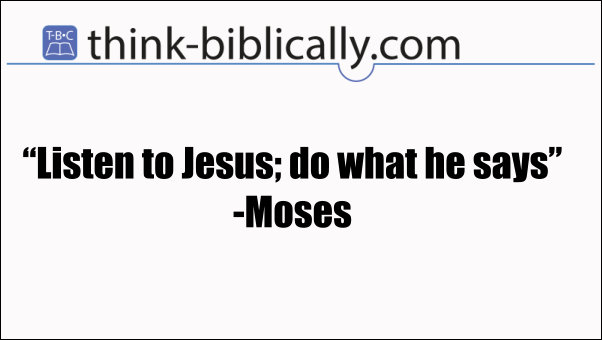By Tyson Thorne

As it is today, so it was then. Just as Israel today awaits the coming of the Messiah, so to othe Jews of Jesus' day were looking and seeking the Messiah. An inscription at the Essene community quoted Deuteronomy 18:15: "The Lord your God will raise up for you a prophet like me from among you – from your fellow Israelites; you must listen to him. " This passage is one of hope that spread to every kind of Jew, from the Essene's through rabbinical Jesw and even to the Samaritans.
In his first sermon, Peter quotes this very passage and applies it to Jesus. The one the nation has been waiting over 1000 years for is Jesus! Let that sink in. I think we don't often consider just how profound the person of Jesus is. Moses talked about Jesus. Peter isn't the only one who saw the connection, however. Flip a few pages over in your Bible to Acts 7 and about the middle of his speech (verse 37) we see this same verse quoted. The Essenes, Peter, and Stephen all referencing the same passage isn't coincidence, it's repetition.
Where did Peter and Stephen gain their understanding that Moses was talking about Jesus? Fromthe man himself, of course.
“If I testify about myself, my testimony is not true. 32 There is another who testifies about me, and I know the testimony he testifies about me is true. 33 You have sent to John, and he has testified to the truth… Do not suppose that I will accuse you before the Father. The one who accuses you is Moses, in whom you have placed your hope. If you believed Moses, you would believe me, because he wrote about me. But if you do not believe what Moses wrote, how will you believe my words?” --John 5.31-47
To understand what Jesus is talking about, we need a little context. It was about this same time of year, Springtime in May or possibly very early June and the Feast of Weeks, also called Pentecost, is being celebrated. This feast celebrates the giving of the Law to Moses, so the religious leaders are already thinking in terms of Moses and the Law of God when Jesus heals a paralytic man on the Sabbath. Not that the Pharisees actually witnessed Jesus healing the lame man, they hadn't. Instead they accosted a healthy man carrying his mat on the Sabbath and they decided to stick their nose into his business and remind him (with an accusatory tone) that he wasn't permitted to carry his mat around with him on a Sabbath.
The man explained to the religious leaders that, after being parylized for 38 years a teacher told him to get up, take his mat, and walk. And he did! So of course the Pharisees sought Jesus out for telling the man it was okay to do work on the Sabbath. When they confronted Jesus, he talked about his Father, which fueld their ire even more as they rightly saw he was claiming equality with God. All of this, the feast, the Law of Moses, the healing, the telling a man to work on the Sabbath and then claiming to be the Son of God all play into Jesus telling the religious leaders that they need to listen to Moses, then do as Jesus says.
What I find interesting is that, on this occassion, Jesus didn't try to reason with the Pharisees. "You claim to listen to Moses," he said. "Moses says you should do what I say. No, really, look it up. I'll wait." Peter and Stephen understood it. How well do we understand it? That remains to be seen. Look into your heart and ask how obedient you are not to the Law, but to the author of the Law, Jesus Christ.
